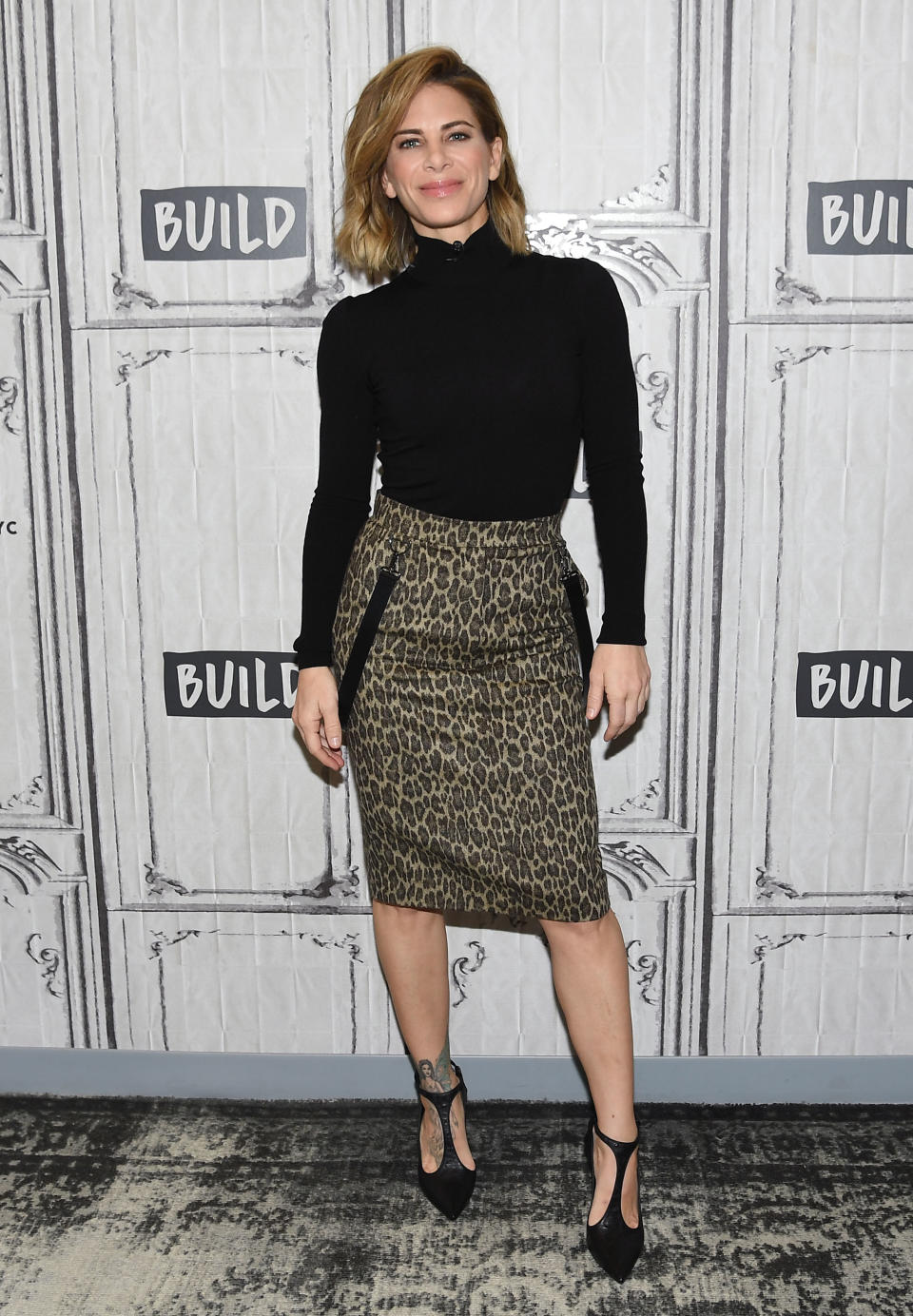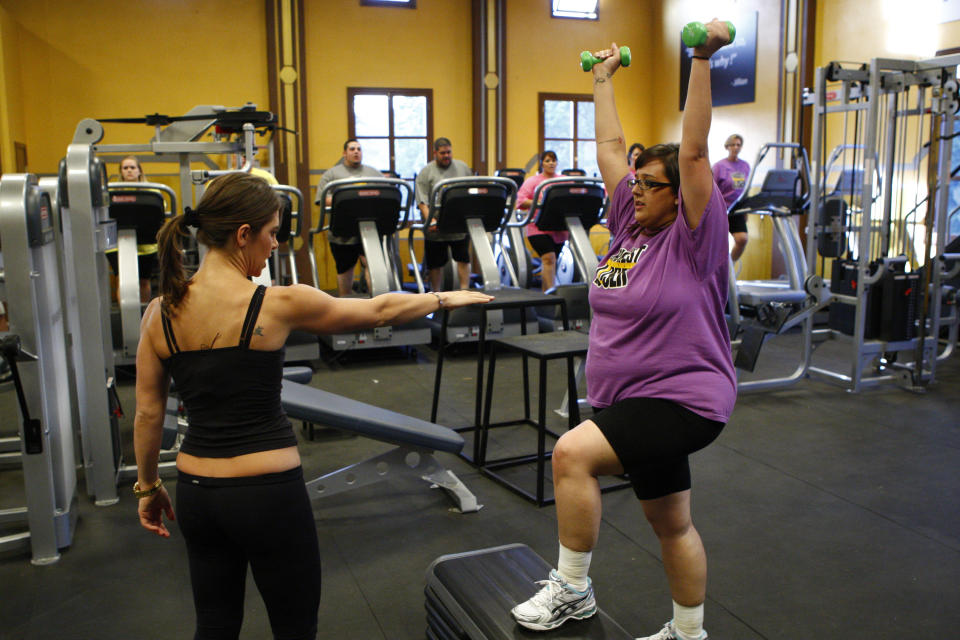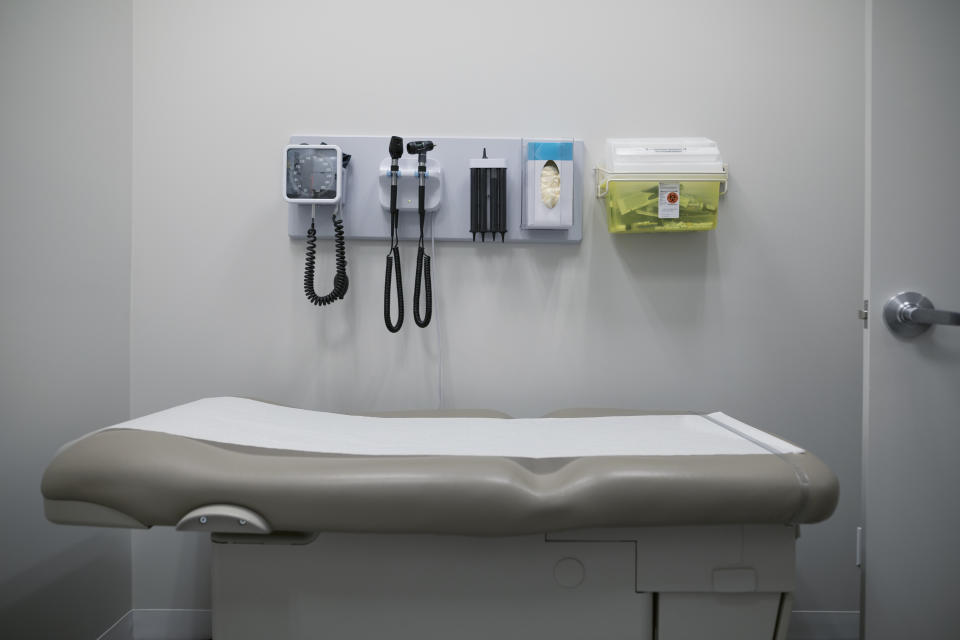Jillian Michaels believes 'political correctness' is 'glamourizing obesity' - and that's not OK

Jillian Michaels believes political correctness is dangerous for larger bodies - and that’s a major problem.
The personal trainer lived up to her no-holds-barred reputation in a recent interview with Women’s Health U.K., in which she shared some troubling views about the current state of health, fitness and body positivity.
ALSO SEE: 'We should be proud of our size': How this beauty influencer became a fashion industry changemaker
“I think we’re politically correct to the point of endangering people,” Michaels told the magazine. “Yes, we want to be inclusive of everyone [and respect that] everyone comes in all different shapes and sizes. That nobody should ever be body shamed or fat shamed or excluded and that everyone is equally deserving and should feel equally valuable. But obesity in itself is not something that should be glamourized. But we’ve become so politically correct that no one wants to say it.”

The author of “Slim for Life: My Insider Secrets to Simple, Fast, and Lasting Weight Loss,” said the current climate of body acceptance would prevent a potential reboot of “The Biggest Loser” from success.
“I think the world has shifted to a place where that format and messaging is considered fat shaming. But it isn’t and it’s not meant to be,” Michaels said. “Now we’ve gone so far in the opposite direction.”
Here’s the thing - I’m not surprised by Michaels’s statements, but I am disappointed.
It’s exclusive and narrow-minded for Michaels to suggest that by being in a larger or fat body (whatever phrase you’re comfortable using), people’s lives are in danger, instead of recognizing that weight is not the sole determinant of health. Genetics, environment, mental health, sleep quality, medical issues and prescribed medications all play a factor on a person’s weight in addition to diet and exercise. It takes effort for people to expand their minds and think of weight as a symptom of disease in the body, rather than the culprit. It’s only through education and access to adequate medical care that we can begin to undo years of misinformation and half-truths that fuel weight stigma for profit.

One of the most common arguments against body positivity and size acceptance is that we “promote obesity” by simply showing people with larger bodies respect. There seems to be this unspoken belief that there is a weight limit to the courtesy we show people before it becomes a collective responsibility to label someone as “unhealthy” or “at risk.”
Even Michaels purports body respect and acceptance to a point - before proposing that we are “endangering” other people if we don’t impose our own beliefs and feelings on other people, offer unsolicited advice or remind people with larger bodies that they are, in effect “wrong.”
ALSO SEE: Plus-size singer Lizzo wants people to stop calling her 'brave' for posing nude
The “political correctness” Michaels speaks of is what’s holding people accountable to what is essentially the last socially acceptable form of discrimination in our society.
Unlike race, age and gender, weight is not protected under the Human Rights Code of Canada. In the United States, it’s only illegal in Michigan, as well as a handful of cities scattered across the rest of the country. Our social climate fosters respect and equality, and helps us to highlight the areas affected by weight stigma that prevent larger bodied individuals from earning an equal salary as well as gaining access to housing, education and particularly, quality health care.

Weight bias impacts and impairs the level of care people receive from their physicians. While there are alarm bells ringing on the dangers of obesity, medical professionals remain undertrained in the field of study. A 2010 study published in Academic Medicine revealed education in obesity and nutrition among medical students is on the decline. Of the 105 medical schools surveyed, only 25 per cent of students met the required minimum of 25 hours of nutrition education, compared to 38 per cent in 2004.
ALSO SEE: 'I had to walk away': Why one body positivity blogger called 'time-out' on social media
The lack of education into the complexities of weight are exemplified by health professionals in their treatment of larger bodied patients. Physicians spend less time with patients with larger bodies, offer fewer preventative tests and less cancer screening tests, while one survey revealed 31 to 42 per cent of nurses would prefer not to care for them.
If the people Michaels suggest are at risk are faced with biased, undertrained medical professionals (and former reality TV trainers), what hope is there to make positive and healthy changes?
It takes education, respect and accountability - whether Michaels likes it or not. It doesn’t hurt people to practice political correctness, but it does hurt when public figures with a large following use their platform to propel harmful and stigmatizing messages.
Let us know what you think by commenting below and tweeting @YahooStyleCA! Follow us on Twitter and Instagram.



